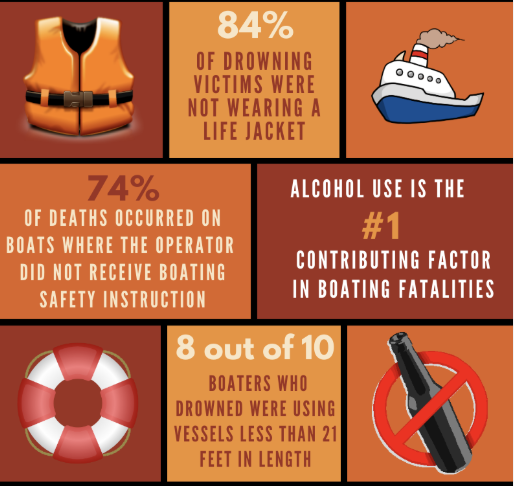
Do You Need a Boating License? A State-by-State Guide to Safety Course Requirements
Whether you’re planning to rent a boat for the weekend or operate a vessel professionally, understanding your state’s boating license and safety course requirements is essential—and in many places, it’s the law.
At BoatnCrew.com, we believe that safe boating starts with knowledge. That’s why we’ve broken down the state-by-state rules for boating education, so you know exactly what’s required before heading out on the water.
🛟 Why Boating Safety Education Matters
Unlike driving a car, not every state requires a traditional license to operate a boat—but almost all require some form of boater education, especially for motorized vessels and younger operators.
A boating safety course can teach you:
- Navigation rules (the “rules of the road” on water)
- Emergency procedures
- Legal responsibilities
- Environmental protection
- Proper equipment usage
These courses are offered online and in person, usually take a few hours to complete, and can save lives.
📍 State-by-State Overview (Select Highlights)
Here’s a quick overview of boating license and safety education requirements in key U.S. states. (Note: Always check your local agency for the most up-to-date regulations.)
- New YorkRequired for all motorboat operators as of January 1, 2025.
- “Brianna’s Law” is being phased in based on age until full implementation.
- Approved courses are available online and in-person.
- New JerseyMandatory for anyone born after Jan 1, 1979, and for all PWC (Jet Ski) operators.
- Must carry your Boating Safety Certificate at all times.
- FloridaAnyone born on or after Jan 1, 1988 must complete a boating safety course to operate a motorized boat of 10+ HP.
- Temporary certificates are available for tourists and short-term renters.
- CaliforniaThe California Boater Card is being phased in by age group through 2025.
- All operators by 2025 will need a boater card after completing an approved course.
- TexasRequired for anyone born on or after Sept 1, 1993.
- Applies to most motorized vessels and all personal watercraft.
- MassachusettsYouths ages 12–15 must complete a safety course to operate a motorboat.
- All PWC operators ages 16–17 must also be certified.
- Alaska, Arizona, Wyoming, South DakotaThese states do not currently require boater education, but it is strongly encouraged.
- Some local waters or rental companies may still require a course.
🧭 How to Get Certified
You can get certified through providers like:
- Boat-Ed (www.boat-ed.com)
- BOATERexam
- NASBLA-approved local courses
- In-person courses through state agencies or the U.S. Coast Guard Auxiliary
Once complete, you'll receive a Boater Education Card or Certificate, which may be valid for life and recognized in other states.
🌍 Our Take: Make It Universal
At BoatnCrew.com, we support the idea of mandatory boating education on all waters, everywhere. Whether you’re on a lake in Montana or a yacht in Miami, understanding the basics of safety, navigation, and responsibility should be the bare minimum.
A certified boater is a safer boater—and that protects not just you, but everyone on the water.
⚓ Final Thoughts
Before you launch, check your local laws. Make sure you and your crew are properly educated and certified. It’s one of the simplest—and smartest—ways to ensure a fun and safe boating experience.
Stay safe out there,
The BoatnCrew.com Team

